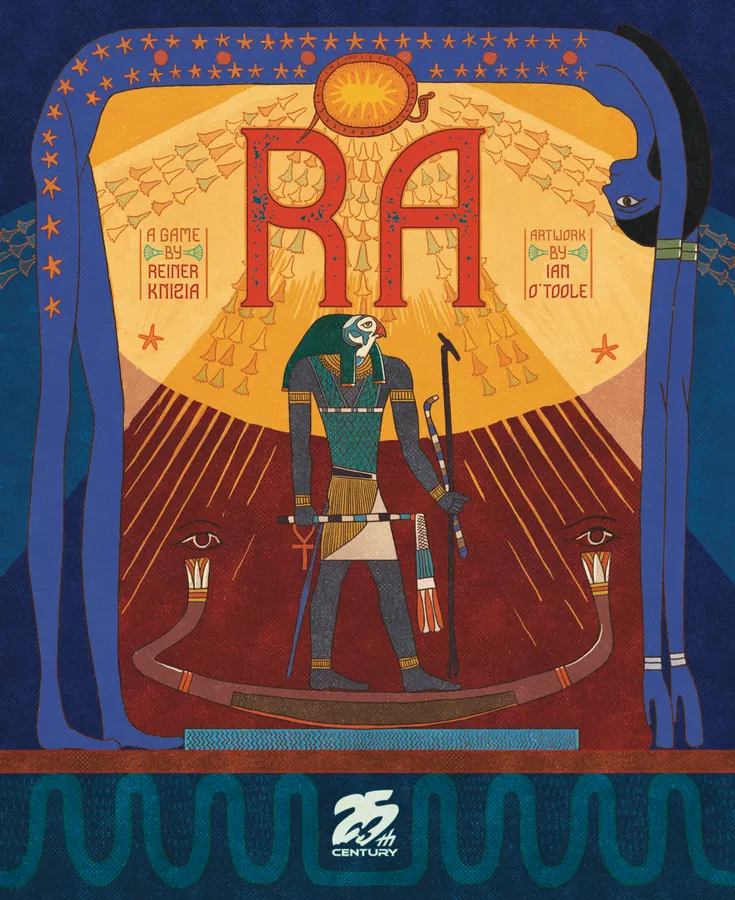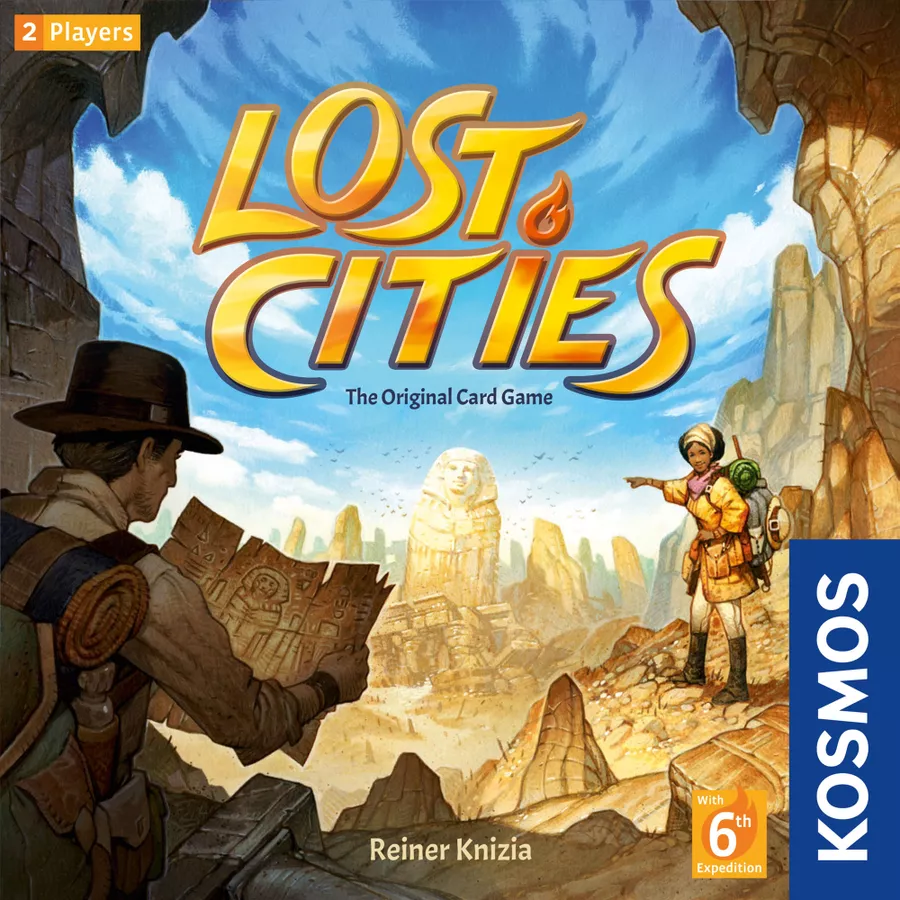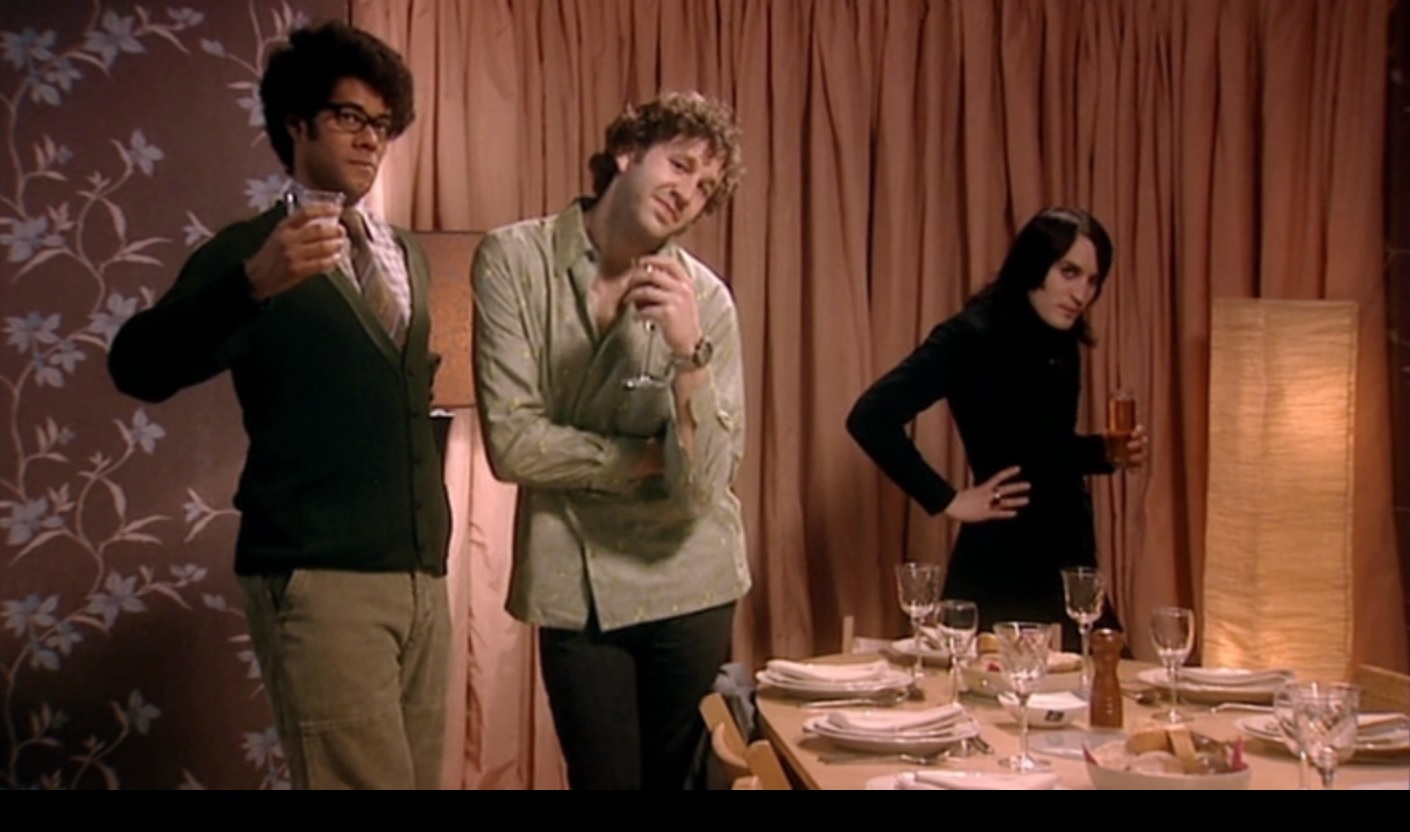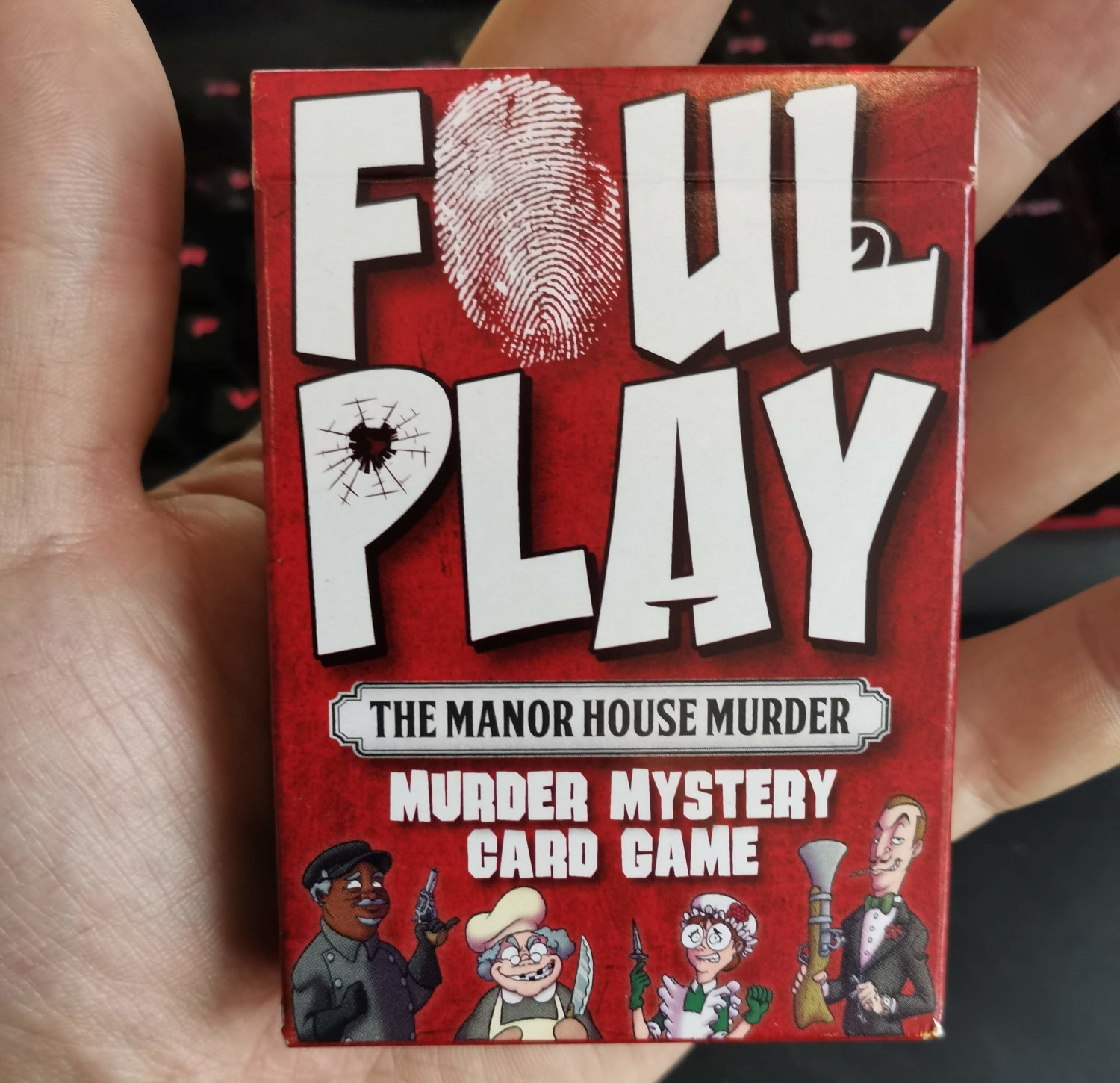Reiner Knizia – Staying Relevant

After a throwaway comment I saw online somewhere, I realised that one of the most prolific, important game designers of all time, only has one game left in the BGG top 100. That designer is Dr Reiner Knizia, and this fall from prominence (if that’s what that is… more on that later) shocked me. The question is – does it matter? And if so, why?

Reiner? I hardly knew ‘er
I’m not going to re-invent the wheel here, and write out a huge biography. You can see his designer page on BGG for that level of detail. He’s a game designer who started out with a PhD in mathematics, worked in banking, and then started designing games. The reason he’s so important to the hobby is how influential he was during the first modern board game boom, in the ’90s.
When I called him prolific in the opening paragraph, I wasn’t exaggerating. In the ’90s alone he had at least 115 games published. Let that sink in. That’s nearly a game a month, every month, for ten years straight! Were they all great? No, there’s some instantly forgettable stuff in there, some extra-light roll-and-move games, kids games – all kinds of things.

The good games he made during that time – the really good ones – are very important to modern board games. To illustrate the point, let me tell you that nine of the top 1,000 games on BGG are ones that Knizia had published in the ’90s.
If that doesn’t sound impressive, let me put it another way. Just about 1% of the top 1,000 games on BGG today, are ones that he created before the PlayStation 2 was released.
Slapping on some context
Let’s apply some context to all those facts. Firstly, and most importantly, the board game scene in the ’90s was a wildly different place. Even though Knizia was pumping out games in his sleep, the actual number of new games released every year was much smaller than today. Each year in that decade saw around 1,000 games published per year. In 2021 alone, 5,000 new games were released, and that number looks set to grow in the near future.

Every game released back then had a much smaller market to compete against, so real stand-out games were able to lodge themselves at the top of the BGG charts, once the site launched in 2000. The big unknown in all of what I’m talking about in this article is the BGG ranking algorithm. The numbers and formulae that determine a board game’s rank on BGG is a secret, but it’s generally understood that a big part of it is users individual users’ ratings, averaged when a certain threshold of ratings are submitted for each game.
I believe there must be some level of ranking decay applied too, otherwise older games with very high ratings would almost never get toppled. If that’s true, then it’s not surprising that older games slip. If an older game is out-of-print, and hundreds of new games are riding a wave of social media hype, who is buying and ranking older games any more?
Knizia’s still big, right?
See, that’s what I thought. But then I started to think – which of his games have I bought, or played, lately? Lost Cities has been in my collection forever, and I recently picked up the roll and write version (which is great). The same goes for Heckmeck, it’s evergreen for me. But what about other people? Do they buy and play his games? There was only one way to find out – to Facebook!

I’m a member of a great UK-based board game group on Facebook called Board Game Trading and Chat UK (BGT&C UK), so I asked the folks there. In particular, I wanted to know how long people have been in the hobby, and how many Reiner Knizia games they own. Over 200 people responded, and the results confirmed what I’d already guessed. Here are the headlines.
- Over a third (35%) of respondents who took up the hobby since early 2019 have never bought a Reiner Knizia game.
- Nearly a quarter (22%) of respondents who have been into board games for longer than 3 years, own six or more Reiner Knizia games.
The replies on the poll told the same sort of story. Recent gamers had games like My City or The Quest for El Dorado. None of them are buying the classics such as Tigris and Euphrates, Samurai, or Ra. There’s a very good reason which explains some of that – they’re out-of-print and very hard to get. Even if they weren’t though, would they stand a chance against the Gloomhavens and Ark Novas of the world?
Are the games that good, or is it nostalgia?
I asked myself more questions at this point. Am I just looking at his games with rose-tinted glasses, in the same way some people convince themselves VHS and audio cassettes were best? Have games just moved on in recent years, leaving everyone’s favourite bowtie-wearing German irrelevant? This is a tricky one, because it’s always going to be subjective. One man’s trash is another man’s treasure, and all that jazz. Personally though, I have to say yes – yes they’re still great games worth your time. I carry Lost Cities in my work bag, just in case an opportunity presents itself, and at GridCon last year I played Heckmeck. His games are still in my regular rotation.

Ra, Medici, Battle Line, Keltis, Modern Art, Amun-Re – they’re all great games, and would fit in at most modern games nights. They just don’t get the exposure they deserve any more, and that lack of popularity perpetuates a vicious circle, which sees the games not getting reprinted. Just last year, both Z-Man and Grail Games dropped their plans to print new and old Knizia games, because they just weren’t selling as well as they’d hoped.
Sad times for old farts like me. Sad times also for anyone new to the hobby, hoping to catch up on some classics.
Hype has so much to do with which games people play now. We get bombarded on all fronts of social media with new games. Twitter, Instagram, and Facebook are full of people getting onboard with the latest hotness, and it’s changed the way people choose and buy games. Reiner’s games don’t normally go near Kickstarter, which means making a dent in a potential buyer’s consciousness is harder than ever.
Playing Knizia games in 2022 and beyond
So what does this year, and indeed the future, have in store for Knizia fans like me? Well, it’s a mixture of good and bad news really. The bad is the issues I mentioned above, with the difficulty of getting his out-of-print gems. People who got into board games during the pandemic are going to struggle to get hold of a copy of Tigris & Euphrates without paying through the nose for a second-hand copy, and the same goes for most of his other big box games.
He will, inevitably, keep producing new games, the majority of which will come through traditional channels. My Island for example, the follow-up to 2020’s My City, is due later this year, and is sure to do well. The small box classics like Lost Cities, High Society and Schotten Totten are seemingly always available, and thoroughly recommended as ways to sample some of his design, if he’s new to you.
The most exciting news, as far as I’m concerned, is that Alley Cat Games have picked up the reprint of Amun-Re. Alley Cat make really nice productions, and have already proven they can handle reprints of older titles, with last years revamp of Tinners’ Trail. Now that the rights for the older games have been handed back to the original owners, I hope we see other publishers picking them up, and refreshing them for a new audience.
To wrap-up then – yes, Reiner Knizia doesn’t have the same prominence as he did 20 years ago, nor does his name have the same clout when it’s printed on a box. Writing him off would be a mistake though, and there is still a vast trove of his games to play, to get acquainted with his work. In fact, you can do it for free, right now. Follow this link to his free print-and-play of a great dice game – Decathlon.
I’m glad our hobby has Dr Knizia in it, it’s a brighter, better place for it. Long may it continue.
Author’s notes
Hey folks, I just wanted to take a few lines to cover a few things. Firstly, yes, this entire article was spawned by – and makes constant reference to – the BGG rankings. I know that not everyone agrees with their rankings, or finds them important, but they’re undeniably a strong marker for popular opinion.
Secondly, this post isn’t meant to knock the good doctor in any way, or suggest he’s not designing good games. The man’s a genius as far as I’m concerned, and there are games of his that will stay in my collection forever.
Finally, I’m particularly pleased with the heading “Reiner? I hardly knew ‘er”. The bonus wordplay in there is ‘er’ being the German pronoun for ‘him’. I amuse myself, if no-one else.



















